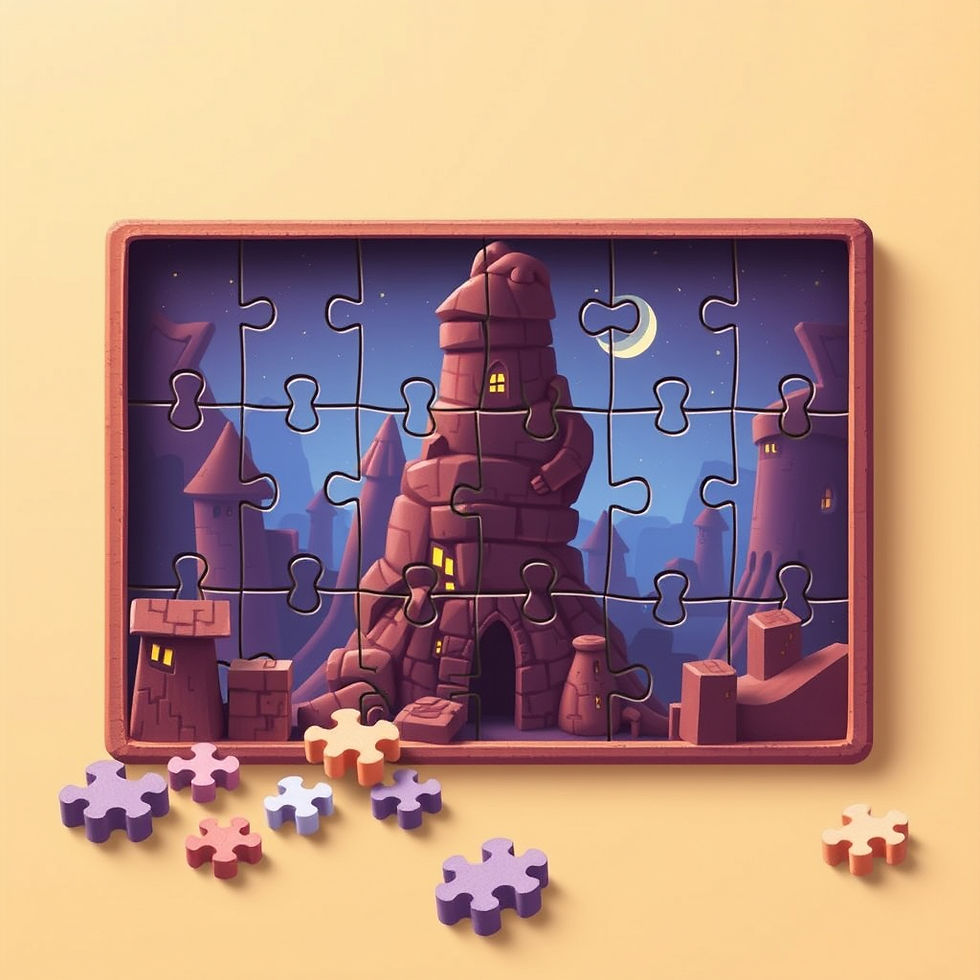Invisible Education in Gaming: How Games Teach You Without You Realizing
- Geniuscrate

- Nov 14, 2025
- 2 min read

Some of the most fascinating games are not the ones filled with explosions or giant open worlds. They are the games that quietly teach you something while you believe you are only having fun. This concept, known as invisible education, is becoming one of the most innovative directions in modern game design.
What Is Invisible Education
Invisible education refers to learning that happens naturally during gameplay. Players do not receive lessons or structured teaching. Skills develop simply because of the mechanics and challenges presented during the experience.
For example, puzzle games improve problem solving, strategy titles build planning and forecasting, and co op games naturally strengthen communication.
How Game Mechanics Drive Natural Learning
Game mechanics act as hidden teachers. Developers design systems that reward certain real world behaviors without making them feel like educational steps.
Examples of Mechanics That Teach
Resource balancing builds time management.
Physics interactions help players understand cause and effect.
Social choice systems encourage empathy and negotiation.
Map exploration sharpens memory and spatial skills.
Crafting loops improve sequencing and planning.
The player learns because the world requires it, not because a lesson is forced.
Why Invisible Education Matters
Invisible education makes learning enjoyable. When people gain skills accidentally through play, they are more likely to remember them and transfer them to real life. This explains why gamers often develop strong reflexes, adaptable thinking, and creative problem solving.
It also creates a positive connection between learning and enjoyment, something traditional education sometimes struggles to provide.
Hidden Skill Gains Across Genres
Invisible education appears everywhere, even in genres not considered educational.
Examples
Racing games improve reaction time and decision speed.
RPGs strengthen reading comprehension and choice evaluation.
Survival games build resilience and resource awareness.
City builders encourage logistical planning.
Multiplayer titles enhance teamwork and emotional management.
These skills develop through repeated play, not through instruction.
The Future of Invisible Education in Games
With better AI and adaptive systems, future games will respond to player behavior more accurately. This allows games to identify weaknesses and slowly strengthen them.Invisible education may soon support real world training in soft skills, leadership, emotional intelligence, and cognitive endurance.
Conclusion
Invisible education proves that games are more than entertainment. They are subtle learning systems that shape how players think, react, solve problems, and connect with others. As games evolve, this hidden layer of learning will only grow more powerful.



Comments